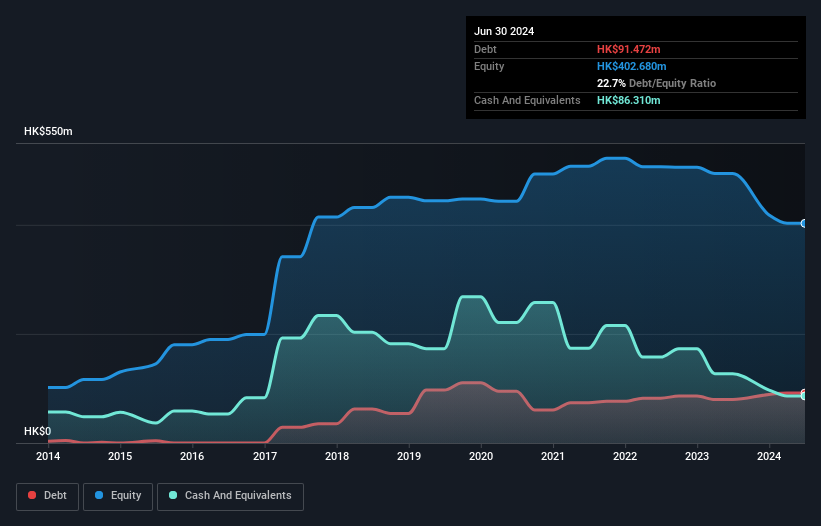
Howard Marks put it nicely when he said that, rather than worrying about share price volatility, 'The possibility of permanent loss is the risk I worry about... and every practical investor I know worries about.' When we think about how risky a company is, we always like to look at its use of debt, since debt overload can lead to ruin. As with many other companies C Cheng Holdings Limited (HKG:1486) makes use of debt. But the more important question is: how much risk is that debt creating?
When Is Debt A Problem?
Debt and other liabilities become risky for a business when it cannot easily fulfill those obligations, either with free cash flow or by raising capital at an attractive price. If things get really bad, the lenders can take control of the business. While that is not too common, we often do see indebted companies permanently diluting shareholders because lenders force them to raise capital at a distressed price. By replacing dilution, though, debt can be an extremely good tool for businesses that need capital to invest in growth at high rates of return. When we examine debt levels, we first consider both cash and debt levels, together.
See our latest analysis for C Cheng Holdings
How Much Debt Does C Cheng Holdings Carry?
As you can see below, at the end of June 2024, C Cheng Holdings had HK$91.5m of debt, up from HK$79.7m a year ago. Click the image for more detail. On the flip side, it has HK$86.3m in cash leading to net debt of about HK$5.16m.

How Strong Is C Cheng Holdings' Balance Sheet?
According to the last reported balance sheet, C Cheng Holdings had liabilities of HK$222.8m due within 12 months, and liabilities of HK$9.67m due beyond 12 months. Offsetting this, it had HK$86.3m in cash and HK$356.9m in receivables that were due within 12 months. So it actually has HK$210.7m more liquid assets than total liabilities.
This excess liquidity is a great indication that C Cheng Holdings' balance sheet is almost as strong as Fort Knox. With this in mind one could posit that its balance sheet means the company is able to handle some adversity. When analysing debt levels, the balance sheet is the obvious place to start. But you can't view debt in total isolation; since C Cheng Holdings will need earnings to service that debt. So if you're keen to discover more about its earnings, it might be worth checking out this graph of its long term earnings trend.
Over 12 months, C Cheng Holdings made a loss at the EBIT level, and saw its revenue drop to HK$426m, which is a fall of 34%. To be frank that doesn't bode well.
Caveat Emptor
While C Cheng Holdings's falling revenue is about as heartwarming as a wet blanket, arguably its earnings before interest and tax (EBIT) loss is even less appealing. Its EBIT loss was a whopping HK$29m. Having said that, the balance sheet has plenty of liquid assets for now. That will give the company some time and space to grow and develop its business as need be. The company is risky because it will grow into the future to get to profitability and free cash flow. When analysing debt levels, the balance sheet is the obvious place to start. However, not all investment risk resides within the balance sheet - far from it. For instance, we've identified 2 warning signs for C Cheng Holdings (1 can't be ignored) you should be aware of.
When all is said and done, sometimes its easier to focus on companies that don't even need debt. Readers can access a list of growth stocks with zero net debt 100% free, right now.
Have feedback on this article? Concerned about the content? Get in touch with us directly. Alternatively, email editorial-team (at) simplywallst.com.
This article by Simply Wall St is general in nature. We provide commentary based on historical data and analyst forecasts only using an unbiased methodology and our articles are not intended to be financial advice. It does not constitute a recommendation to buy or sell any stock, and does not take account of your objectives, or your financial situation. We aim to bring you long-term focused analysis driven by fundamental data. Note that our analysis may not factor in the latest price-sensitive company announcements or qualitative material. Simply Wall St has no position in any stocks mentioned.